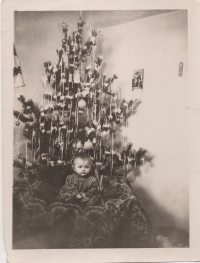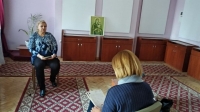“My zůstáváme - jako pokračování našich rodičů, pokračování jejich historie, jejich paměti”

Download image
Julija Ivanivna Nykolyn se narodila 14. dubna 1967 ve městě Balej v Ruské federaci. Julijini rodiče, Ivan Stets and Paraskevija Stets (Dzibčak), byli aktivními účastníky ukrajinského osvobozeneckého hnutí. Rodiny obou rodičů byly pronásledovány a deportovány do “zvláštních osad”. Babička z matčiny strany byly odsouzena v roce 1945 k deseti letům vězení. Svůj trest si odpykala v koncentračních táborech Areljuk, Antibez, Kangir. Ivan a Paraskevija se setkali ve “zvláštní osadě” Balej, kde se vzali a vrátili se domů v roce 1958, rok po narození dcery Julije. Pro Juliji bylo místo narození ve “zvláštní osadě” po celý život stigmatizující, stejně jako to, že měla za rodiče “nepřátele lidu”. Na počátku devadesátých let byla paní Julija jednou ze zakladatelek Ternopilské regionální společnosti dětí politických vězňů a pronásledovaných. Nyní je v důchodu a pokračuje ve svých občanských aktivitách.







